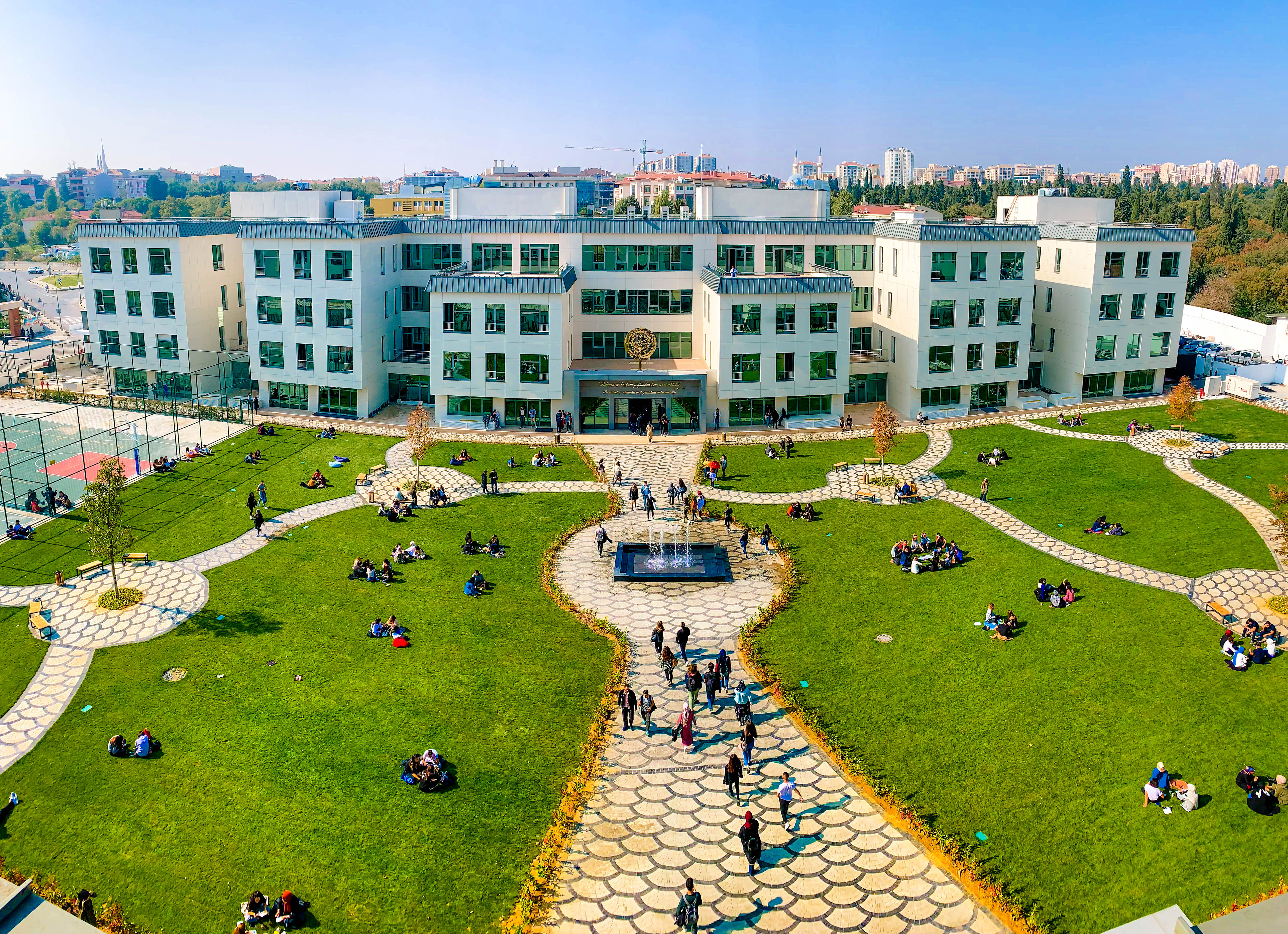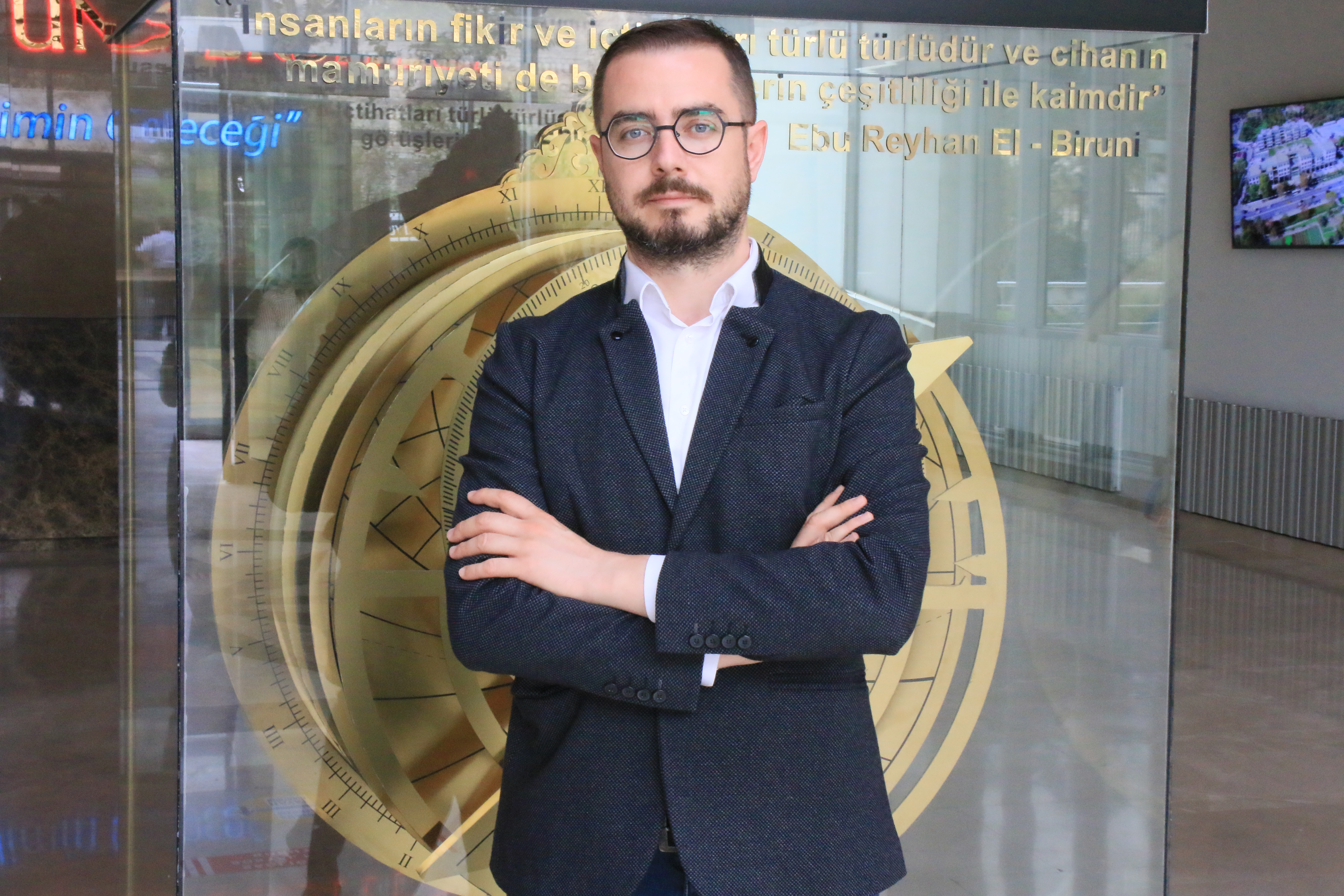Biruni University and Hospital Builds a Solid IT Foundation with High-Performance Network and Storage Solutions
Este sitio utiliza cookies. Si continúa navegando en este sitio, acepta nuestro uso de cookies. Lea nuestra política de privacidad>
![]()
Productos, soluciones y servicios empresariales
Biruni University — Turkey's most comprehensive medical university — has more than 9000 students, including over 300 international students, across six faculties. Indeed, it trains and educates many of the region's healthcare professionals, who often begin their careers in its affiliated hospital, Biruni University Hospital.
Founded in 2016, the ten-storey Biruni University Hospital is run by a total of 500 staff — including over 70 doctors — who oversee 153 beds and offer advanced diagnosis and treatment services. The hospital's vision is to be an innovative and leading health institution that not only serves as the benchmark for other hospitals in Turkey, but also around the world.

From hospitals and clinics to public health administrators and universities, a massive amount of data is being generated each and every day. But unlocking the value inherent in it is no easy task since, traditionally, each one of these organizations has independently managed its own applications, electronic document workflows, policies, and procedures, in isolation from the rest.
Yet, an advanced Information and Communications Technology (ICT) solution can help to collect, manage, analyze, and visualize all of this data, allowing hospitals and educational institutions to turn data into actionable insights. In addition, powerful storage devices and servers make it easier to process more information faster, using it to improve patient care and the education experience. Although patient data is collected by clinical staff and university lecturers are responsible for teaching students, it's the Information Technology (IT) department that is often held accountable for access to records. Indeed, ICT best practices enable organizations to connect people and systems quicker and more cost-effectively, improving collaboration and informed decision-making and supporting ongoing improvements in the quality of education and patient care.
In 2019, Biruni University built a new campus for an additional 6000 students, with a bold plan to expand the student body to 15,000 in the near future, anticipating future demand for its graduates. Of course, this also required the expansion and upgrade of the existing ICT infrastructure, to provide high performance information-sharing services to the whole university and hospital community, including students, lecturers, and hospital staff.
While lengthy infrastructure updates had to wait until the university holidays, as weekend or overnight work would not allow sufficient time, the new solution obviously needed to integrate seamlessly with legacy equipment and assets.
Working towards its vision, Biruni University needed to ensure that its IT and networking facilities were up to the job. The IT team was tasked with selecting the vendor to create the right ICT infrastructure.
Biruni University wanted to work with a company that fully understood its business needs and could share its expertise with the university staff. The IT experts required a proven solution that was already available on the market. Additionally, a vendor with the capability to provide the entire infrastructure was preferred. Specifically, the university needed an ICT infrastructure — comprising servers, storages, firewalls, Access Points (APs), and switches — that could provide a connected, robust, secure, flexible, and scalable environment, enabling staff to work collaboratively.
After discussions and testing, Huawei and its partner DT Technology — a trusted partnership already familiar to the university — was chosen for this project. The pair had demonstrated a proven track record of success and, critically, Huawei was the only vendor that could provide a full-stack solution. In addition, Huawei's equipment most closely matched the university's critical requirements, including Huawei's service support throughout the project. The university chose FusionServer V5 Rack Servers, and OceanStor Dorado All-Flash Storage with VMware virtualization to ensure flexible, lightning-fast, efficient, and reliable data backup and Disaster Recovery (DR). The network solution also allowed the organization to benefit from unprecedented levels of communication and collaboration.
"After the university was founded in 2014, I became Biruni University's IT director. In the same year, we started working on building the university server and network infrastructure, and Huawei, together with DT Technology, provided us with the best products at a reliable price. It didn't take us long to realize that the quality and service support of Huawei products exceeded even our highest expectations." — Müjdat Gülay, Chief Information Officer (CIO) of Biruni University and Hospital.

Through years of collaboration, Biruni University was impressed with how easy it was to implement Huawei solutions and the high level of customer support offered. So in 2019, it was excited to collaborate with Huawei once again to develop the infrastructure for the new campus location. In addition to campus infrastructure, the university data center needed to be upgraded and the hospital's IT infrastructure renewed.
For both the university and hospital, the team decided to upgrade the cloud infrastructure for ICT applications with FusionCube for Cloud, FusionSphere, and FusionStorage Distributed Storage. A hyper-converged architecture — consisting of a fully distributed architecture and an embedded distributed storage engine — now eliminates performance bottlenecks, significantly boosting overall performance. Huawei also suggested a Business Continuity Management (BCM) solution that is specially designed for enterprise-class data centers to serve as the university's DR and backup management software. With Huawei Rainbow Converter, Huawei and DT engineers provided a free migration of VMware-based applications to FusionSphere. Moreover, DT and Huawei created a data center room in the university campus with the FusionModule 800 Data Center Solution and moved the former IT server with VMware to FusionCube and FusionSphere.
Huawei's S series switches were deployed to tackle the exponential increase in the consumption and creation of hospital and university data that had been straining network capacity and scalability. Elsewhere, Huawei's Wireless Local Area Network (WLAN) solution> offered high-speed wireless access throughout the campus.
The IT department wanted to optimize and efficiently manage the network infrastructure to cope with future demand, with the number of ICT users in the university only set to increase. The Huawei eSight network management solution and agile controller for end-to-end security and compact autonomous management skills helps make this happen.
Toward the beginning of 2020, the sudden need for quarantine measures and the urgent switch to remote learning forced the university to prioritize a videoconferencing solution. As such, Huawei and DT deployed an e-learning videoconferencing infrastructure for Biruni University without any additional investment required, all on Huawei's FusionCube cloud platform. Today, around 10,000 students can connect to the Biruni University campus data center cloud and attend classes remotely.
"When the pandemic hit in March 2020, we decided to go with the best solution for our newly opened campus building. We have successfully arranged remote learning with our scalable and high-capacity server and network products. Special thanks to Huawei and DT Technology." — Müjdat Gülay.
Thanks to the long-term cooperation with Huawei and DT Technology, Biruni University has gained access to state-of-the-art equipment, with predictable investments. A full-stack solution proved to be the most effective, and ensured a higher level of compatibility between all systems.
From setting the project goal to going live, the entire deployment process took only six weeks, ensuring a smooth start to the new academic semester. Teams from DT Technology and Huawei trained IT experts at Biruni University to get the most out of the new infrastructure. Afterwards, the Biruni IT team achieved better visibility across their entire network and gained a better understanding of their own infrastructure. The IT team is confident that they now know how to manage the solution long-term and can pass on this information on to any new employees.
By upgrading to the latest generation of Huawei's FusionCube solution, the number of servers was dramatically reduced, simplifying and optimizing legacy IT infrastructure. Instead of performing mundane server maintenance and menial tasks, IT staff are now able to focus on core duties, such as implementing new applications and exploring new technology applications.
With the deployment of the newest AirEngine Wi-Fi 6 technology, the new network provides higher bandwidth, lower latency, and higher reliability, enabling greater access to the full range of centralized university and hospital resources, applications, and information. The new network also requires fewer cables and endpoints, freeing up valuable space for other uses.
By working closely with a single technology partner for all ICT needs, Biruni University has created a sustainable, reliable foundation that enables quick access to secure and accurate data across the entire university and hospital ecosystem. With IT requirements met, Biruni University can now focus on more important goals, such as providing the highest quality of education and healthcare services for all, to retain its position as Turkey's most comprehensive medical university.